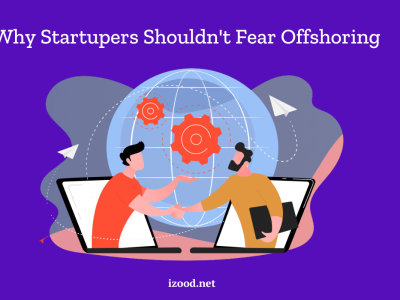At its core, a B2B (business-to-business) marketplace is an online platform where businesses can sell their products or services to other companies.
Unlike the traditional retail outlets or B2C (business-to-consumer) platforms we’re familiar with, B2B marketplaces are engineered specifically for the intricate dynamics of business transactions.
We’ll explore some crucial aspects of the B2B marketplace, including its key features, advantages, and potential challenges. But let’s start from the top.

The Basics of B2B Marketplace
The B2B realm is distinct from its B2C counterpart. While B2C primarily revolves around businesses selling directly to individual consumers, B2B centers on transactions between businesses. This could be a manufacturer selling to a distributor, a wholesaler to a retailer, or any similar configuration.
In a B2B marketplace, there are typically three main constituents:
- Sellers: These are businesses offering their products or services.
- Buyers: Other businesses looking to procure products or services.
- Intermediaries (sometimes): Platforms or agents facilitating the transaction.
Moreover, the kind of products you’ll often encounter in B2B marketplaces can be vast. These can range from industrial machinery to bulk apparel and more. For instance, a distributor might seek out an electronics B2B marketplace to source large quantities of electronic components.
Key Features of B2B Marketplaces
B2B marketplaces are fortified with features that make business transactions smoother and more efficient. Some of these quintessential features include:
- Product listings and catalogs: Like on consumer-focused e-commerce sites, sellers in B2B marketplaces can list their products, complete with descriptions, specifications, and images. This gives potential buyers a comprehensive view of what’s on offer.
- Advanced search functionalities: Given the diversity and specificity of business needs, B2B platforms often sport advanced search options. This ensures businesses can find exactly what they need without sifting through thousands of unrelated listings.
- Bulk and customized order options: Unlike B2C platforms where you might order a single item, businesses often need to place bulk orders. B2B marketplaces accommodate this with features that allow for bulk ordering and, in some cases, options to customize orders based on specific needs.
- Integrated payment gateways: With transactions potentially running into the thousands or millions of dollars, these marketplaces have robust and secure payment systems tailored to handle the nuances of business transactions.
- Ratings and review systems: Trust is paramount in business. Sellers on B2B platforms are often subject to reviews and ratings by their buyers, ensuring transparency and building trust within the community.
Advantages of B2B Marketplaces
The rise in popularity of B2B marketplaces is no accident. They offer a slew of advantages that make them a viable option for modern businesses, most notably cost efficiency and a wider reach.
- Cost efficiency — Operating in an online B2B marketplace can significantly cut down overheads. Businesses no longer need to maintain expansive showrooms or hire a battalion of sales reps. The platform itself acts as a 24/7 salesperson, showcasing products to potential buyers globally.
- Wider reach — Traditional business transactions were often limited by geography. With an online marketplace, businesses can reach buyers from all corners of the globe, opening up vast new markets and opportunities.
As the digital age progresses, B2B marketplaces are becoming increasingly indispensable. They streamline operations, cut down costs, and expand reach, enabling businesses to thrive in a competitive global environment. And with specialized platforms, companies can easily find exactly what they need, tailored to their specific industry demands.
In the subsequent sections, we will delve deeper into the significance of specialized B2B marketplaces and explore potential challenges businesses might face in these platforms. Stay tuned to understand how these marketplaces can truly revolutionize the way we do business.
The Importance of Specialized B2B Marketplaces
Niche or specialized B2B marketplaces have mushroomed in recent years and with good reason. These platforms cater to specific industries or product categories, allowing for a laser-focused approach that both sellers and buyers appreciate.
Take the example of the electronics B2B marketplace. On such a platform, businesses dealing in electronics — from components and modules to finished gadgets — come together. Sellers can showcase their specialized products, and buyers, often aware of the industry’s nuances, can find exactly what they’re searching for without being inundated by irrelevant listings.
Benefits of these niche marketplaces include:
- Better targeting: Sellers can market their products to a more defined and relevant audience, reducing the noise and increasing the chances of a successful transaction.
- Specialized products: Niche platforms often host products that might not find space on broader B2B platforms. This ensures that even businesses with particular needs can find what they’re looking for.
- Understanding industry-specific needs: Specialized marketplaces often incorporate features that are unique to that industry. This could mean ensuring products meet certain certifications or adhere to specific standards.
Potential Challenges
While B2B marketplaces have undeniable advantages, it’s also essential to be aware of potential hurdles:
- Maintaining product quality: With a vast array of sellers, ensuring consistent product quality can be a challenge. Buyers must be diligent, leveraging reviews and ratings to pick trustworthy sellers.
- Ensuring secure transactions: With large sums at stake, ensuring a safe transaction environment is crucial. While most platforms have robust security measures, businesses should also take their own precautions.
- Managing high-volume orders: The logistics of fulfilling bulk orders can sometimes be daunting, especially for new entrants in the marketplace. It’s crucial to have systems in place to handle high demand.
- Integrating with diverse business systems: Different businesses use different inventory, accounting, and CRM systems. Ensuring seamless integration can sometimes pose challenges.
Conclusion
In a world where digital is becoming the norm, B2B marketplaces are changing the face of business transactions. These platforms offer unprecedented advantages, from cost savings to global reach, making them an attractive proposition for businesses of all sizes.
Specialized platforms further hone in on specific industries, offering tailored solutions that all-purpose marketplaces might miss.
Yet, as with any venture, it’s essential to tread with awareness. Only by understanding the potential challenges and strategizing to counteract them can businesses harness the power of B2B marketplaces to catapult themselves into a new era of commerce.
As the lines between physical and digital continue to blur, these platforms are undoubtedly set to play an even more significant role in shaping the future of business.







